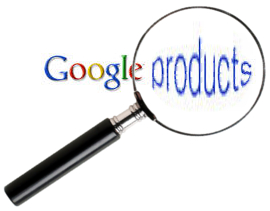Tracking Google Product Search, Part 2

The following question arrived in our inbox recently:
“Thank you for a very good post on filtering traffic for tracking Google Products. However, this will not apply for #1-3 listings showing up on the 1st page of Google right? (and those usually account for most of the traffic)
To get around this I tagged my Google Product URLs as per Google Analytics URL Tagging Tool but found that all of my rankings instantly dropped significantly.
Do you have any other ideas on how to track Google Product traffic in Analytics?”
The post he referred to is Tracking Google Product Search Traffic. In that post, Jonathan gave two methods to track traffic from Google Product search:
- Campaign Tagging
- Advanced Filter
(***Using filters as a form of tracking is no longer a feasible way of measuring search traffic. Google changed the beginning of the URLs so they are the same on both regular search results and within Google Product Search, so a filter no longer works to bring you actionable data. However, campaign tagging is still an effective means of gathering data.)
The second method is the easiest to implement, but only shows you traffic that comes directly from the Google Product search pages. If you have products that are blended into the main Google results page (universal or blended results) this won’t help. Why? Because the filter looks for visits coming from www.google.com/products…. and changes the source to reflect that it’s a visit from Google Products. When a person clicks on your product listing in the main Google results, the referrer is just www.google.com and the filter does not apply, so the visit appears as google/organic.
The Solution
Apply both #1 and #2. By adding campaign tracking parameters to the URLs in your Google Base/Merchant feed, you will be able to track if they are clicking on your listing whether it’s coming from the main Google results or from the Google Product search results. And by also applying the advanced filter, you’ll be able to segment which set of results the visits come from.
But that still leaves the nagging problem of the mysterious dropped rankings that the emailer alluded to:
“To get around this I tagged my Google Product URLs as per Google Analytics URL Tagging Tool but found that all of my rankings instantly dropped significantly”
Oddly enough, something very similar happens when you use this method to track your Google Local Business Listings. Here’s the solution we’ve found to work for the local listings, which should have the same effect for product listings as well:
- For the product URL, submit a vanity URL, like www.greenwidgets.com/category/product/google-products
- Have the vanity URL 301 redirect to the product page with campaign tracking parameters, set off with the hash tag (#) instead of the question mark (?) (why use the hash tag?) For example: www.greenwidgets.com/category/product/#utm_source=google-product&utm_me…
- Make sure you include pageTracker._ setAllowAnchor(true); in your Google Analytics code (here’s how)
I’ve tested this method for the local business listings and deem it safe, but have only been able to test it in a very limited fashion for Google Product listings. So before you go off and change thousands or product URLs and set up countless redirects, be sure to test it yourself on a smaller scale to be sure it works for you. Don’t say I didn’t warn you.


